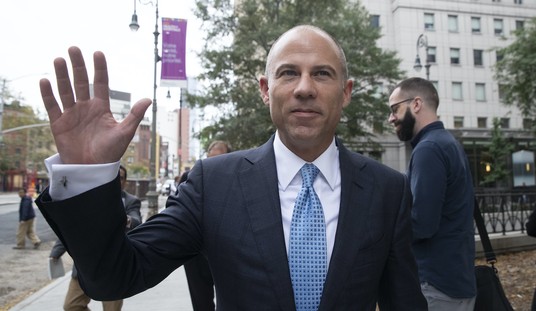Congressman Jim Sensenbrenner has introduced legislation which would have the effect of placing all of Virginia’s election laws under Justice Department oversight, and Virginia isn’t the only state that would fall into federal election receivership.
Sensenbrenner’s bill, H.R. 885, is co-sponsored by Rep. John Conyers (D-MI) and multiple members of the Congressional Black Caucus. It revives federal control through the Voting Rights Act over every state election law change. In 2013, the Supreme Court’s Shelby County vs. Holder decision struck down this power as an outdated and unconstitutional relic from a half-century ago.
Texas would also fall under immediate federal control if Sensenbrenner’s bill passes.
Other states well on their way to federal oversight include Ohio, Florida, New York, and California. States such as Louisiana would also fall under immediate federal control. (The text of H.R. 885 is here.)
Sensenbrenner and other far-left organizations argue that federal control over state elections is necessary to protect voting rights. Yet other parts of the Voting Rights Act are still in effect banning race discrimination, and were not touched by the Supreme Court.
Attorney General Eric Holder has claimed that federal control of state elections is necessary because voting rights are “under siege.” Yet Holder’s Justice Department hasn’t filed a single Voting Rights Act case in two years, and has only brought a handful in over six years, far fewer than the Bush administration brought during the same time period. If voting rights are under “siege,” thus justifying federal control over state elections, Holder doesn’t seem to be doing much about it besides advocating for expanded federal power over states.
In the last Congress, Rep. Sensenbrenner, a large number of Democrats, and a small number of Republicans introduced H.R. 3899. H.R. 3899 was identical to H.R. 885. The bill died in 2014, thanks to the opposition of Judiciary Chairman Bob Goodlatte (R-VA) and the presence of many Judiciary Committee members who hail from states that would be threatened with renewed federal control over state election laws. These members included Rep. Trent Franks (R-AZ), Rep. Ted Poe (R-TX), and Rep. Louie Gohmert (R-TX).
Last March, Rep. Sensenbrenner was caught on hidden camera at a hometown town hall by James O’Keefe demonstrating that he did not understand details of his bill — including the fact it would exclude white voters from protection.
The bill reverses Shelby County, when the Supreme Court ruled that the “triggers” of the 1965 Voting Rights Act had become obsolete in 2013. The old triggers used turnout data from the Goldwater-Johnson, Nixon-Humphrey, and Nixon-McGovern races to determine if a state was covered for federal oversight. Using these triggers, sixteen states were covered in 2013 — including New Hampshire, South Dakota, Michigan, and New York as well as South Carolina, Texas, Arizona, and Mississippi, among others.
Sensenbrenner’s bill creates revived triggers. Here’s how it works: If a state has five Voting Rights Act violations in a fifteen-year span, including one violation by the state, all election laws at every level of state and federal government would have to be approved by the attorney general of the United States to ensure they are free from racial discrimination.
Before Shelby, Eric Holder used this power to block election integrity laws like citizenship verification in Georgia, changes to early voting days in Florida, and voter identification laws in Texas and South Carolina. Beyond these high-profile cases, in lesser cases this federal power was routinely used to advance the interests of left-wing groups like the ACLU and NAACP, sometimes to such a degree that federal courts imposed sanctions on Justice Department lawyers for abusing the oversight power.
Sensenbrenner’s bill does nothing to mitigate this history of abuse of power. (I filed a brief to the Supreme Court in Shebly as amicus detailing how this abuse of power has manifested over the years.)
Using Sensenbrenner’s proposed new triggers, Virginia would fall under federal government oversight immediately for every election law change under his bill.
Virginia satisfies Sensenbrenner’s new triggers. Remember, under Sensenbrenner’s proposal, one statewide violation and four violations by any local or county government trigger federal oversight, including past administrative objections by the attorney general. Five strikes, and you’re in.
Here are the cases which would capture Virginia for Justice Department control:
One: The Justice Department objected to a redistricting plan in Northampton County in 2003. Strike One.
Two: The Justice Department objected to a redistricting plan in Cumberland County in 2003. Strike Two.
Three: The Justice Department objected to a redistricting plan in Pittsylvania County in 2002. Strike Three.
Four: The Justice Department objected to another Northampton County redistricting plan in 2003. Strike Four.
Five: Virginia has a recently decided statewide case arising out of 2012 congressional redistricting. In Page vs. Virginia State Board of Elections, a federal three-judge panel found that Virginia violated the Constitution when it drew a redistricting plan to create minority black congressional districts.
Presto — Virginia would fall under federal control, and the Department of Justice bureaucrats would leverage federal power over every election in the state. Virginia faces this perverse outcome: a plan created black-majority congressional districts so that the Justice Department would approve the plan, then a federal court finds (after the Shelby ruling struck down the DOJ power) that creating those black-majority districts violates the law, and that violation will be used to place Virginia back under federal control.
Virginia has suffered constitutional whiplash, and Sensenbrenner’s bill would keep it going.
But it’s even worse for Virginia. Just before the Supreme Court ruled in Shelby, Virginia was only partly covered by federal oversight. Some counties were in, and some counties were out. If Mr. Sensenbrenner’s bill becomes law, then every single town, city, county, and school board in Virginia will be under Justice Department control for election law changes. The state will be covered also. This is a state that elected Doug Wilder as governor, an African-American.
Ironically, proponents of federal control cited Virginia to the Supreme Court as a state which had local jurisdictions escape federal oversight by bailing out. They pointed to their escape as showing that the law was not overly onerous. Sensenbrenner’s bill would deliver a cruel reversal of that bailout history.
In the last Congress, some Republicans from states on the cusp of federal control, such as Ohio, were cosponsors of H.R. 3899. As of now, they are not cosponsoring Sensenbrenner’s latest push to reverse the Supreme Court and revive federal control over state elections. Only six other Republicans have now joined Sensenbrenner’s effort to expand federal power.
Far-left advocates of Sensenbrenner’s bill are demanding a hearing to build momentum behind the effort. The better choice is to let Mr. Sensenbrenner’s bill quietly die in this Congress the same way it died in the last Congress.










Join the conversation as a VIP Member